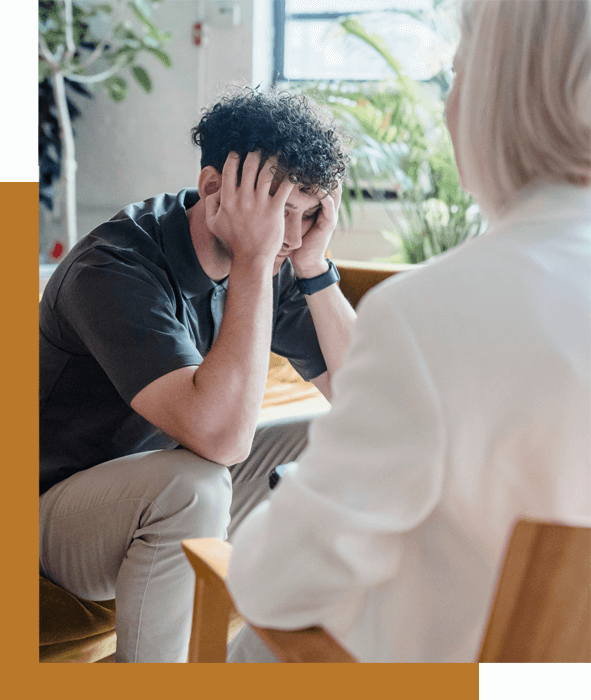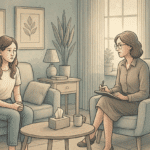Exposure Therapy for anxiety
Anxiety and phobias often create a cycle that keeps feeding into itself. Through exposure therapy, you can break free from these patterns and courageously move forward.

The Benefits of Exposure Therapy
Guides individuals through gradual confrontations with their fears, fostering increased confidence, breaking anxiety cycles, promoting desensitization, and delivering lasting improvements
Overcoming Fear
Exposure therapy empowers individuals to confront their fears gradually, leading to reduced anxiety and increased confidence.
Desensitization
The controlled exposure to anxiety-inducing situations allows individuals to gradually build tolerance, leading to reduced sensitivity over time.
Breaking Vicious Cycles
By addressing avoidance behaviors and confronting triggers, exposure therapy helps interrupt the cycle of anxiety and avoidance.
Lasting Results
Exposure therapy's systematic approach helps individuals develop effective coping strategies, leading to long-lasting improvements in managing anxiety and phobias.
How Exposure Therapy Works
Brief assessment
Take the first step by providing us with some essential details
Connect with Our Therapist
Kickstart your Exposure journey towards personal growth and well-being
Start Your Therapy
Begin your therapy sessions in a safe and welcoming environment. Your journey towards positive change starts right here!
Frequently Asked Questions
Exposure therapy is a therapeutic approach that involves gradually facing and confronting fears or phobias in a controlled and supportive environment to reduce anxiety and promote emotional well-being.
Exposure therapy works by systematically exposing individuals to their feared situations or objects in a safe and controlled manner, helping them learn to manage and overcome their anxiety over time.
Yes, exposure therapy has been proven to be effective in treating various anxiety disorders and phobias. It helps individuals develop coping skills, change their response to fear, and experience reduced anxiety in triggering situations.
Exposure therapy is commonly used to treat conditions such as specific phobias, social anxiety disorder, post-traumatic stress disorder (PTSD), obsessive-compulsive disorder (OCD), and generalized anxiety disorder (GAD).
Exposure therapy may not be suitable for everyone, and its implementation depends on the individual’s specific needs and circumstances. A qualified therapist will assess and determine the appropriateness of this therapy for each person.
The duration of exposure therapy varies depending on the individual’s condition and progress. Some individuals may start to see improvements within a few sessions, while others may require more time for significant changes.
Exposure therapy is conducted under the guidance of trained mental health professionals and follows a structured approach to ensure safety. Therapists prioritize the individual’s well-being throughout the process.
During exposure therapy sessions, you can expect to work collaboratively with your therapist to gradually approach feared situations or triggers. The therapist will provide guidance, support, and tools to help you manage anxiety and navigate the process.
Exposure therapy may temporarily increase anxiety levels during the initial stages as you confront your fears. However, the therapist will guide you through techniques to manage and cope with the anxiety, leading to desensitization over time.
If you struggle with anxiety or phobias that interfere with your daily life, exposure therapy could be beneficial. Consulting with a qualified mental health professional will help determine if this approach aligns with your needs and goals.
Get Started
Ready to Begin Your Journey with Exposure Therapy?
Take the first step towards positive change and improved mental well-being by embarking on your Exposure Therapy (CBT) journey today.






